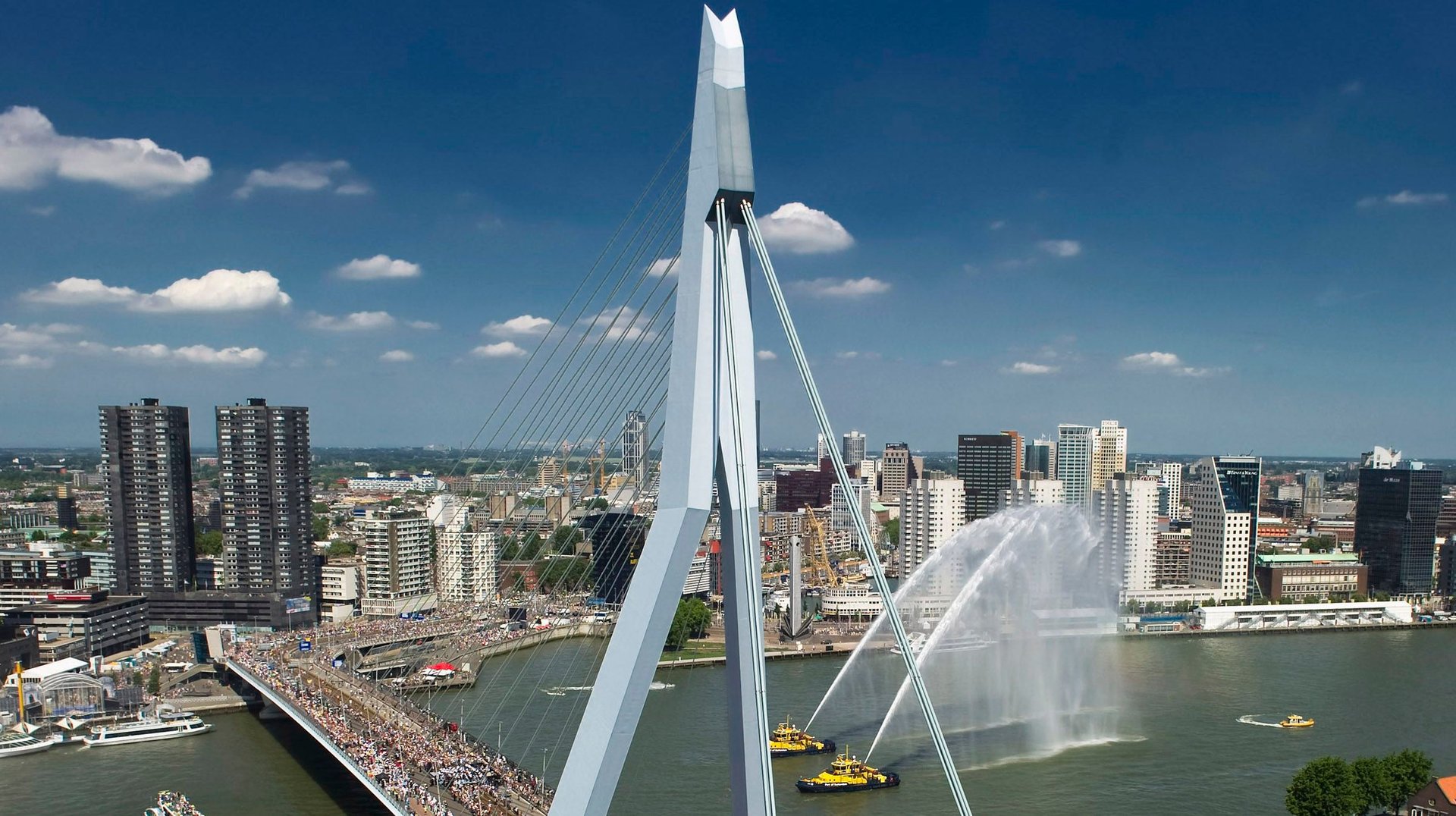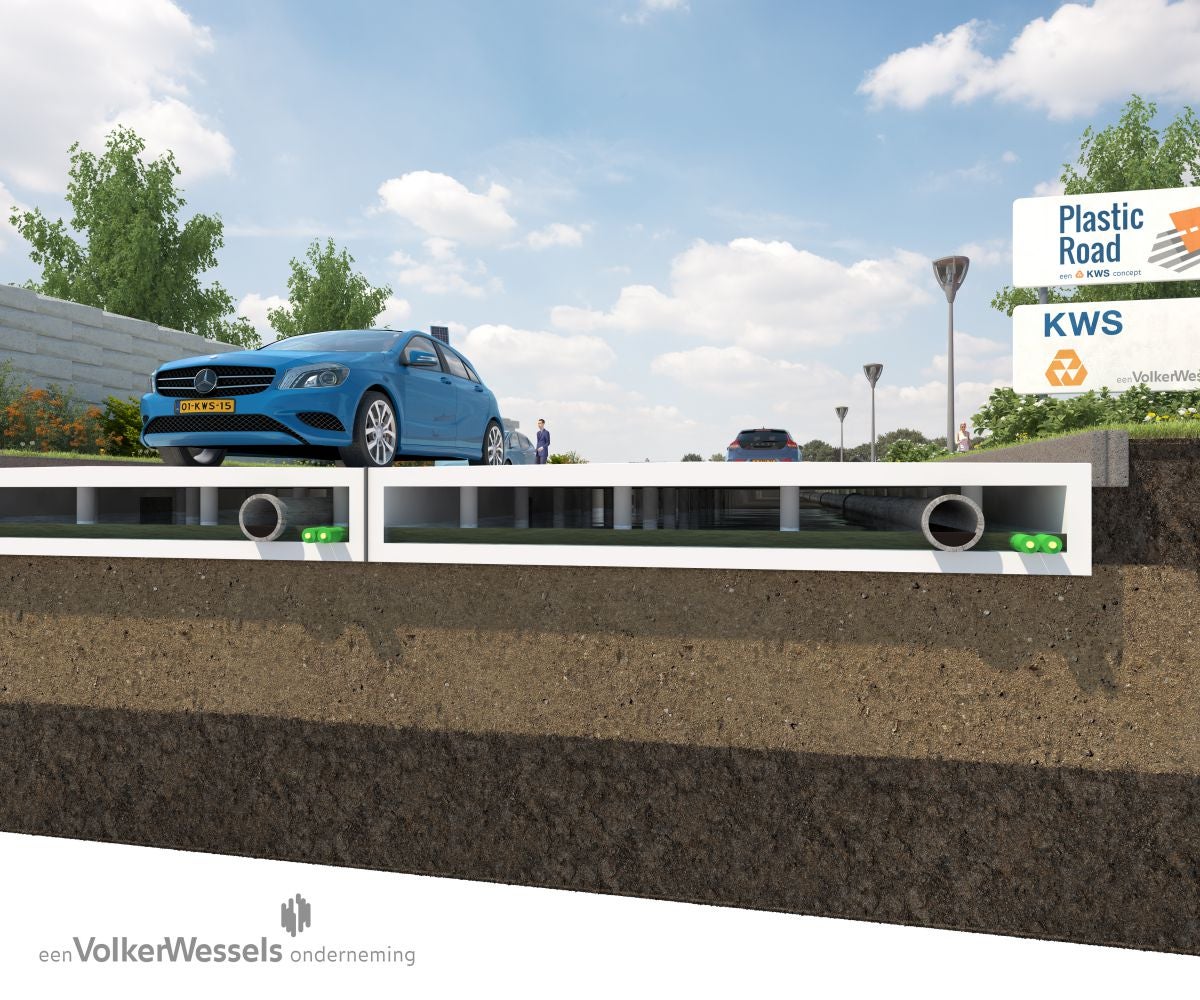The Netherlands could become the first country with streets made of recycled plastic
Think of it as a real-life LEGO set. Dutch-based construction company VolkerWessels announced plans to develop a recycled plastic surfacing material that is more durable than asphalt, which the city of Rotterdam is considering testing out on its streets. The project is a part of a larger initiative to rid the seas of “plastic soup.”


Think of it as a real-life LEGO set. Dutch-based construction company VolkerWessels announced plans to develop a recycled plastic surfacing material that is more durable than asphalt, which the city of Rotterdam is considering testing out on its streets. The project is a part of a larger initiative to rid the seas of “plastic soup.”
Asphalt, according to VolkerWessels, contributes 1.6 million tons of CO2 to the atmosphere each year, which constitutes 2% of all road transport emissions, reports the Guardian.
The material is still but a concept on paper, but the company told the Guardian its aim is to lay its first fully plastic road within the next three years. As illustrated by the rendering below, the designed material would be hollow, making it a lighter and cheaper material than asphalt to haul and install (partly because the plastic segments would be pre-fabricated in a factory before laying them on the road).

The plastic road material, according to VolkerWessels, would require less maintenance and last three times longer than conventional asphalt. And it would also be able to withstand more extreme temperatures, between -40 to 176 degrees Farenheit (-40 to 80 degrees Celsius).
When the material is fully developed, VolkerWessels will be able to test the project in a ”street lab” provided by Rotterdam, a section of city roads designated for testing. If the project is a success, Rotterdam will begin installing plastic roads throughout the city.
Rotterdam is known for its green initiatives. In 2013 the low-lying delta city worked to become flood proof with a climate change adaptation strategy that covered building facades and rooftops with plants to help absorb rain water. In 2014 it created a waste-to-energy plant that converted trash at a plant 12 miles outside the city into energy, transported into the city by a pipeline dubbed a ”heatway.”